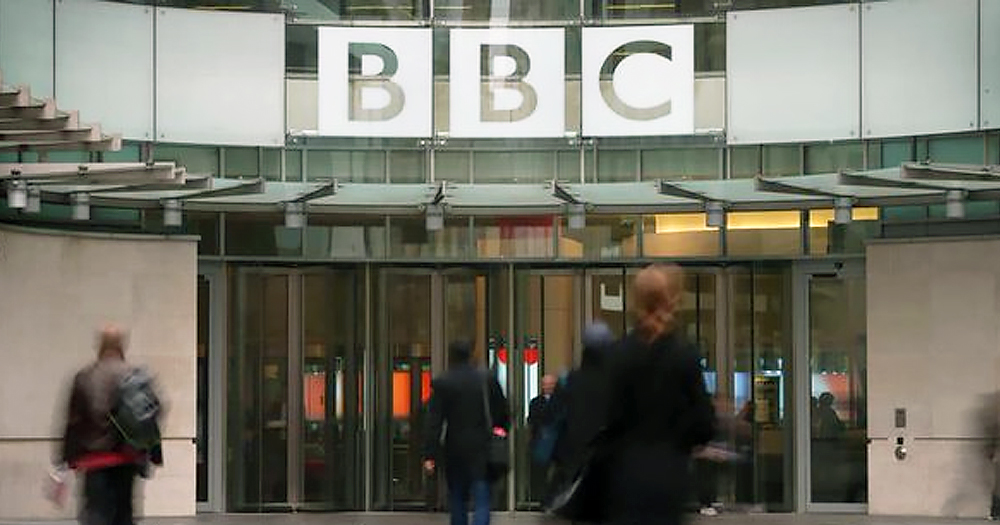The BBC have come under fire after releasing new guidelines of ‘impartiality’ regarding staff members’ use of social media.
On Thursday, October 29, the BBC published Guidance: Individual Use of Social Media, which outlines what the broadcasting company deems acceptable for “those working in news and current affairs”. The announcement garnered widespread backlash following reports from staff meetings in relation to attending Pride events and Black Lives Matter protests alongside the usage of terms such as ‘virtue signalling’ in the guidelines.
The guidelines on impartiality state, “As with social media activity, for those in news and current affairs and factual journalism (across all divisions) judgement is required with regard to marches or demonstrations, though it should be assumed that most marches are contentious (in terms of impartiality) to some degree or other. If in doubt, advice should be sought before attending.”
While the impartiality guidelines only apply to BBC staff members’ online presence, an anonymous employee claimed that “they could be issued with a formal warning or suspended from their job if they attend LGBT+ protests”, according to iNews. However, the broadcasting company told the publication that this will not be considered policy.
TV critic and broadcaster Scott Bryan recently shared an email from the BBC’s director-general Tim Davie to staff members, clarifying that there will not be a strict ban on Pride events. It reads, “If news and current affairs are participating in such events they must be mindful of ensuring that they do not get involved in matters which could be deemed political or controversial.”
BBC Director DG Tim Davie has emailed BBC staff:
"There is no ban on attending Pride parades."
— Scott Bryan (@scottygb) October 30, 2020
Although there has been no outright ban on attending these events, people are alarmed by the implementation of these guidelines and the language it employs. Actor Stephen Mangan wrote on Twitter: “What?? ‘Virtue signalling’ is a bulls**t right-wing insult to try to silence anyone who suggests some consideration for others.”
What?? ‘Virtue signalling’ is a bullshit right-wing insult to try to silence anyone who suggests some consideration for others. Its use signals arseholery. https://t.co/fG6vY8B22l
— Stephen Mangan (@StephenMangan) October 29, 2020
On Twitter, author Christopher Wylie wrote, “According to the BBC, gay, trans and black lives are still up for debate. The BBC policy supports erasure of voices in order to placate white straight Tories in England who apparently still find the existence of queer and black people to be “controversial”.”
https://twitter.com/chrisinsilico/status/1322143355640360962
Columnist Micha Frazer stated on Twitter, “My issue is: how does the BBC decide what is and isn’t political? being proud of being gay = not political. being proud of being trans = political. being black and not wanting to be killed by police = political?”
my issue is: how does the bbc decide what is and isn't political? being proud of being gay = not political. being proud of being trans = political. being black and not wanting to be killed by police = political ??
— micha frazer-carroll (@micha_frazer) October 30, 2020
In July 2020, the broadcasting company also came under fire after removing vital LGBTQ+ resources from their Action Line page. The queer staff network BBC Pride responded to people’s concerns by investigating into this matter, however, reported that they were not given a reason for the removal.
© 2020 GCN (Gay Community News). All rights reserved.
Support GCN
GCN is a free, vital resource for Ireland’s LGBTQ+ community since 1988.
GCN is a trading name of National LGBT Federation CLG, a registered charity - Charity Number: 20034580.
GCN relies on the generous support of the community and allies to sustain the crucial work that we do. Producing GCN is costly, and, in an industry which has been hugely impacted by rising costs, we need your support to help sustain and grow this vital resource.
Supporting GCN for as little as €1.99 per month will help us continue our work as Ireland’s free, independent LGBTQ+ media.
